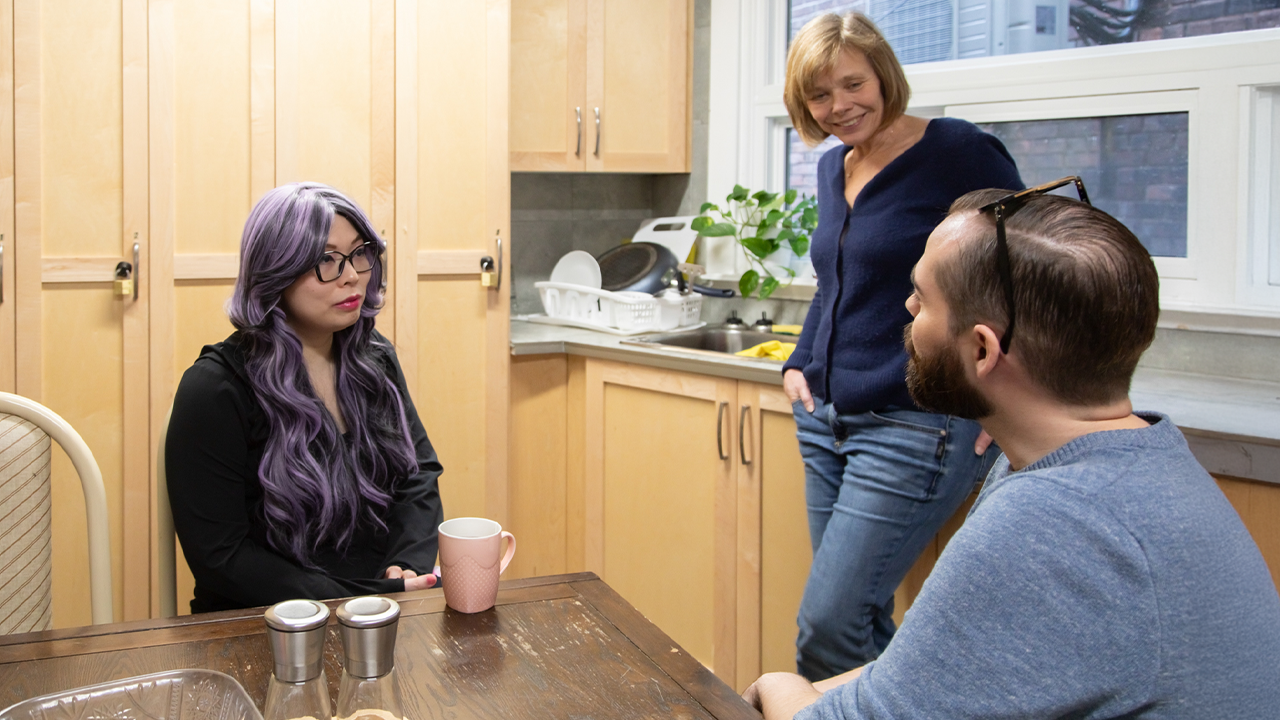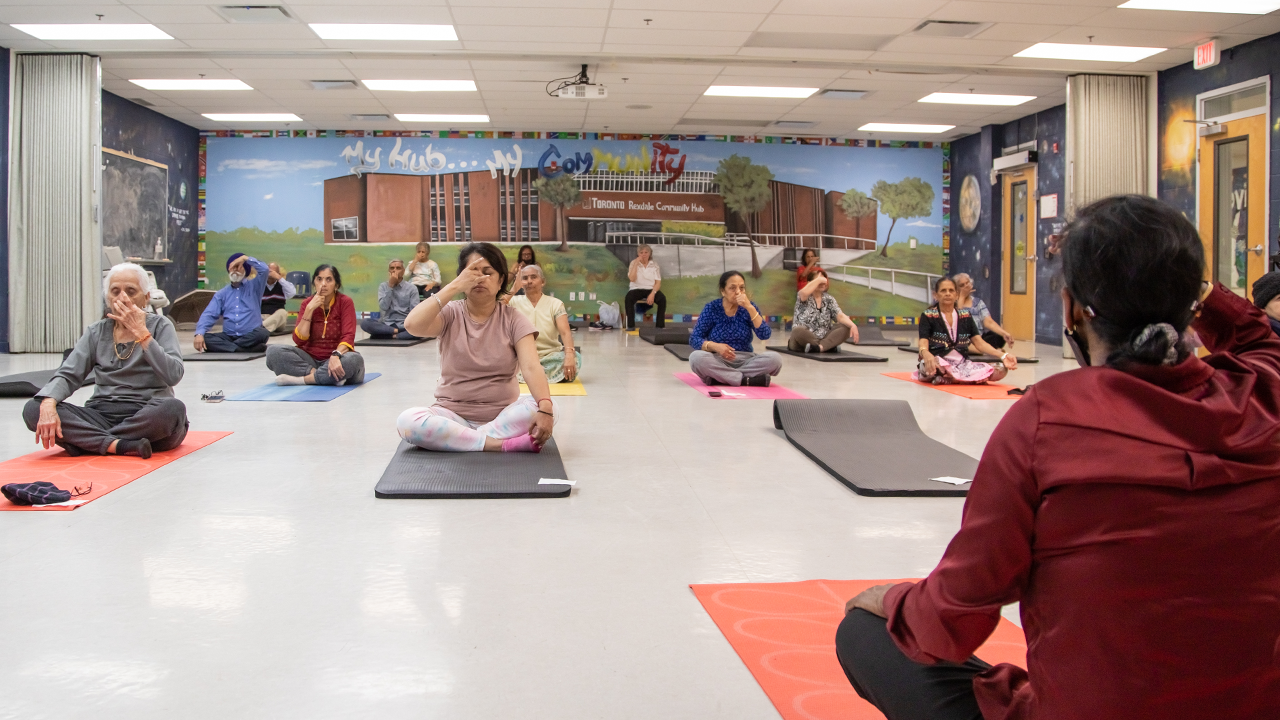
How United Way is working to champion community real estate
With the population of the GTA projected to reach 9 million people by 2035, it is essential that we meet the challenges facing our growing region head on. Housing is a human right, yet many people are finding it increasingly out of reach. The affordable housing crisis doesn’t only impact individuals and families. Rising rents and a volatile real estate market are threatening the existence of community organizations and spaces — spaces that are crucial to a neighbourhood’s prosperity.
Through partnerships, research and advocacy, along with years of experience, United Way Greater Toronto is at the forefront, addressing both urgent, immediate needs related to housing affordability and homelessness, and ensuring community spaces are there, close to home, today and for the years to come.
The importance of securing permanent spaces
As rental prices soar, many non-profits are at risk of losing their spaces, which would mean leaving the neighbourhoods they serve without the supports they rely on.
- Over the past two years, 61% of community organizations have reported experiencing rent increases
- About 1-in-10 of these organizations are at risk of closing a location
United Way is addressing this challenge head-on by supporting agencies with the tools they need to navigate real estate decisions, whether through ownership, or long-term leases with public entities. This not only provides increased stability but ensures these community organizations are not displaced and can continue serving their communities, and those who need them most.
As neighbourhoods change, expanding affordable housing options and ensuring community organizations remain in the communities they serve is key. Non-profit ownership is one way to address the issue and we’re helping to safeguard these vital spaces. A prime example of that is LOFT Community Services.
With United Way’s support, they’ve acquired and renovated properties, providing stability and long-term affordability for residents. LOFT owns a portfolio of real estate assets and is determined to hold on to it so that they can continue providing deeply affordable housing to those who need it. This determination is especially important as property costs are rising amid stagnant wages, rising cost of living and inflation.
“When non-profits own and maintain properties, we are ensuring that stable, affordable housing is available and for future generations. It also allows us to leverage owned assets to create more affordable housing.” says Heather McDonald, LOFT Community Services’ CEO.
United Way’s support is essential she says, and it helps her organization anticipate future challenges, innovate and build with other partners.
“United Way’s financial support provides organizations like us the ability to take leaps and serve folks,” Heather says. “But they also act as a convener: neighbourhood-driven, pulling people together and creating those relationships amongst partners.”
This is why we continue our vital work with other non-profits to find ways for them to own their spaces, providing stability to the organization and the people who rely on them.

Meeting urgent housing needs while scaling programs that work
In York Region, the Black population makes up less than three percent, yet represents over 10 percent of the homeless population, according to United Way’s 2021 iCount survey.
When we leverage community expertise, we can create solutions for specific communities and address this disparity. United Way works with many local agencies to figure out how to meet the specific needs of Black youth who may not be well served in the current system.
United Way-funded 360°kids understands the specific needs, systemic challenges and discrimination that Black youth may face. They partner with Black-focused agencies to create a community response that addresses not only housing, but mental health and other interconnected issues as well.
Serving over 3,000 youth each year, the organization applies a youth lens on the issue of housing, focusing on prevention of homelessness and housing affordability through programs like Transitions which provides young people with stable housing for up to 3 years, with wraparound supports and deeply affordable rents, allowing them to time to gain employment skills and/or continue their education.
Clovis Grant, CEO of 360°kids, underscores the transformative impact of United Way’s support in being able to provide wraparound supports specific to youth.
“Young people need time to develop life skills, employment skills or to go back to school — things that are difficult to achieve when in emergency housing,” says Clovis. “You need to look at longer term solutions, like our Transitions program that gives space and time for young people to develop.”
A non-profit’s ability to leverage permanent housing to provide young people with deeply affordable rent and stable housing — combined with innovative programs that are proven to work — allow community organizations to support people in urgent need and create the foundations for them to build their future.
“We were able to do all of that through United Way funding for our Black Youth Housing program — purchase a house to address the physical needs, then do research to be data-informed and build a model that now can be replicated in other communities,” says Clovis.

Building strong, connected neighbourhoods
United Way’s support also empowers organizations to take on more ambitious projects that can take more time to complete but have long-term impact, like Blue Door’s Housing for All Land Trust. This initiative focuses on creating deeply affordable housing and mixed-income communities anchored by a Community Hub, helping to safeguard affordability and have neighbourhoods that are anchored by organizations, programs and services that serve their communities.
“United Way has helped with redevelopment, stepping up and enabling us to do just that: think differently and bring in different partners,” says Michael Braithwaite, Blue Door’s CEO. “That why we’re able to look at these builds, like 174 units in three different phases. Blue Door could step up and do that and it wouldn’t be possible without United Way.”
Michael notes that to qualify for funding, organizations need to be “shovel ready” but that is a risk that requires an investment, which is where United Way comes in. We’re playing a pivotal role in connecting agencies to government, developers and funding to bring these projects to life.
“United Way has a great reputation with all levels of government, lifting and sharing their platform and their ability to pull together donors and [funders],” Heather says. “United Way thinks about the whole ecosystem.”
It will take long-term, strategic investment to bring to life the kind of affordable housing and community real estate projects that the region needs. United Way is able to bring together the players to make this happen.
Clovis talks about how United Way’s community connections enable the kind of collaboration that helps agencies work together and thrive, “United Way has helped us with this system change work, bringing together partners within York Region so we can be more seamless in our approach, which allows us to move the needle more and leverage expertise.”
Protecting essential community spaces
United Way’s Community Real Estate initiative aims to take vulnerable organizations out of the precarious commercial market by helping them secure more stable, non-market spaces. This ensures essential services can continue where they are needed most.
“Housing and homelessness is often a factor of circumstance,” says Stefphon Nibbs, United Way’s Director of Development and Community Real Estate. “And these circumstances come before you enter that period — which is why it is so critical that we invest in our community services, agencies and folks doing that work in community.”

We are working to bring our Community Hubs to more neighbourhoods in need across the GTA, consolidating services and ensuring greater and more reliable access for every resident. Community Hubs are ‘one-stop shops,’ providing services such as food banks, youth programs, counselling and health clinics, employment supports and newcomer services. United Way already has 10 Community Hubs and plans to expand with 10 more across the GTA in the next decade. These Hubs provide stability and allow agencies to pool resources, making it easier to serve growing or changing populations.
Building a future where everyone has what they need to thrive will take all of us. That includes laying the foundation to address the issue of affordable housing through bold, long-term solutions facilitated through United Way’s deep network of community organizations and strong partnerships — and we’re getting to work with more determination that ever. Any way we can.